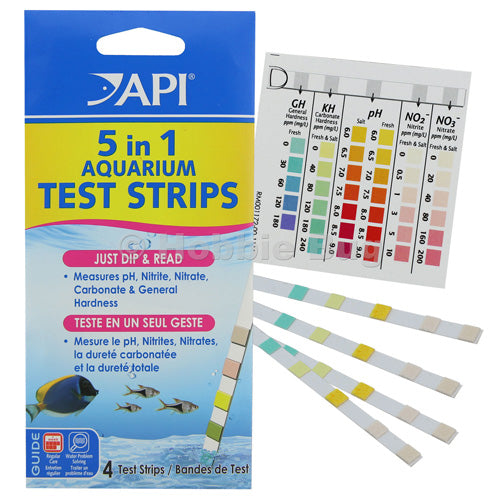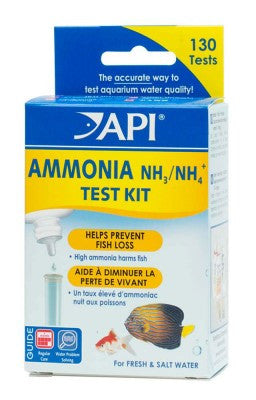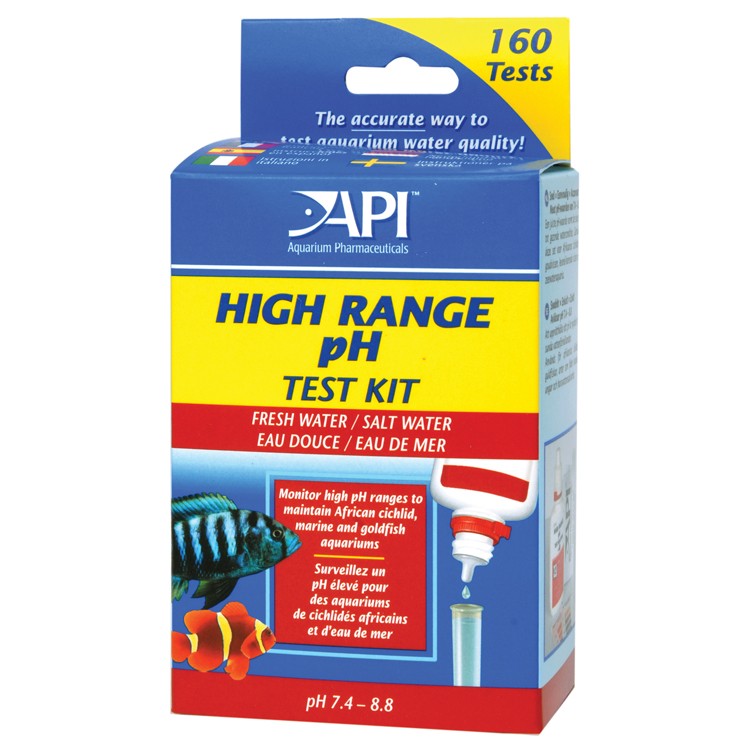This test kit includes everything you need to measure the general and carbonate hardness of your aquarium water.
Benefits:
- Monitors GH & KH to create a more natural habitat
- Use in fresh water
Follow the API Easy Care Guide and use GH/KH TEST KIT when:
- Testing key water parameters
- Identifying problems in an aquarium
Water hardness is a measure of the dissolved mineral content of water. There are two types: the general hardness (GH) and carbonate hardness (KH).
When keeping freshwater fish and plants, the GH and the KH of aquarium water should match their natural habitat. The GH & KH TEST KIT helps aquarists duplicate the natural habitat of their fish, as well as detect low KH levels, which can lead to rapid and wide pH shifts, stressing fish.
Tip: KH can strongly influence pH. If you add a pH adjuster to your aquarium and the pH returns to its original level in a day or two, this is called “pH rebound” –and it is caused by high KH.
Very hard water can cause an ugly white crust (scale) to form on the hood, on glass walls, and on other parts of the aquarium.
Click here to view the GH/KH TEST KIT Instructions.
Directions:
For Testing KH
1. Rinse a clean test tube with water to be tested.
2. Fill the test tube with 5 ml of water to be tested (to the line on the tube).
3. Holding the bottle vertically, add KH Test Solution, one drop at a time. Be sure to count the number of drops being added.
4. Cap the test tube and invert several times after each drop.
5. The test is completed when the water in the test tube, after having been shaken, turns from blue to yellow. If you have difficulty discerning the color after the first drop of test solution is added, remove the cap from the test tube and, while holding it over a white background, look down through the tube.
6. The KH value is determined by the number of drops of test solution that must be added to turn the water in the test tube bright yellow.
For Testing GH
1. Rinse a clean test tube with water to be tested.
2. Fill the test tube with 5 ml of water to be tested (to the line on the tube).
3. Holding the bottle vertically, add GH Test Solution, one drop at a time. Be sure to count the number of drops being added.
4. Cap the test tube and invert several times after each drop.
5. The test is completed when the water in the test tube, after having been shaken, turns from orange to green. If you have difficulty discerning the color after the first drop of test solution is added, remove the cap from the test tube and, while holding it over a white background, look down through the tube.
6. The GH value is determined by the number of drops of reagent that must be added to turn the water in the test tube green.





